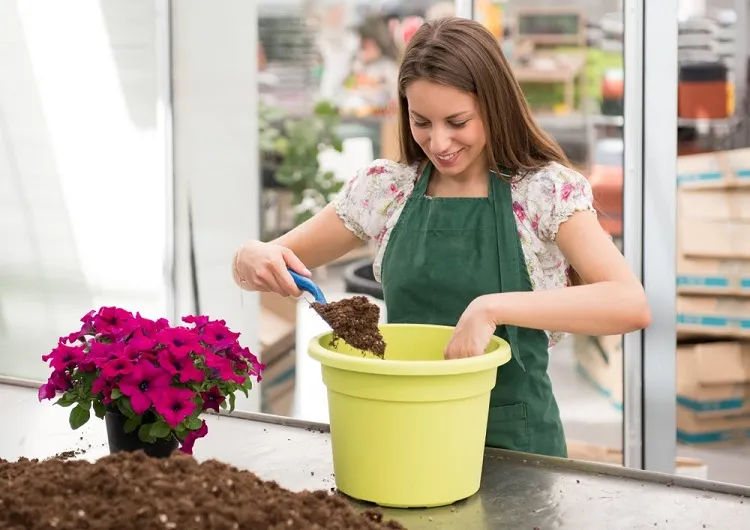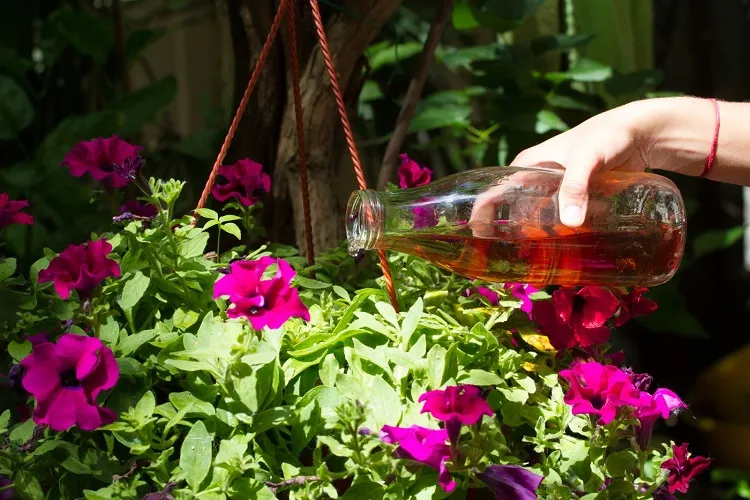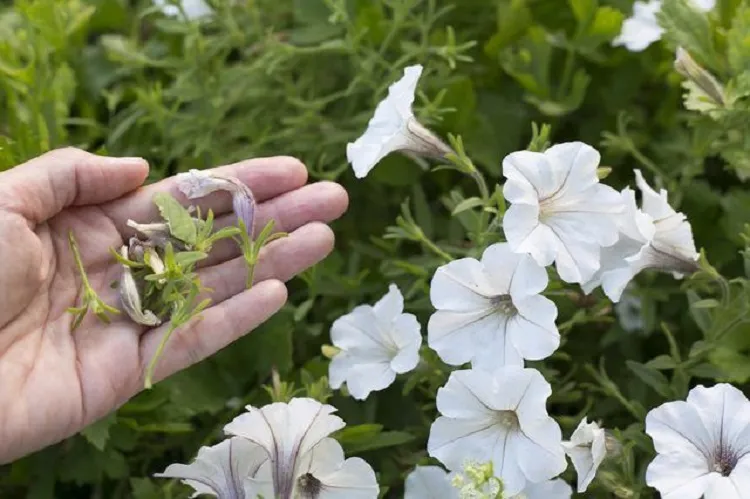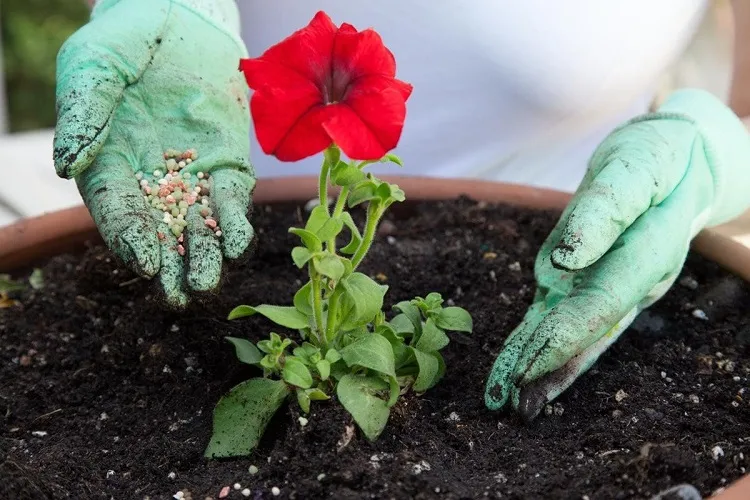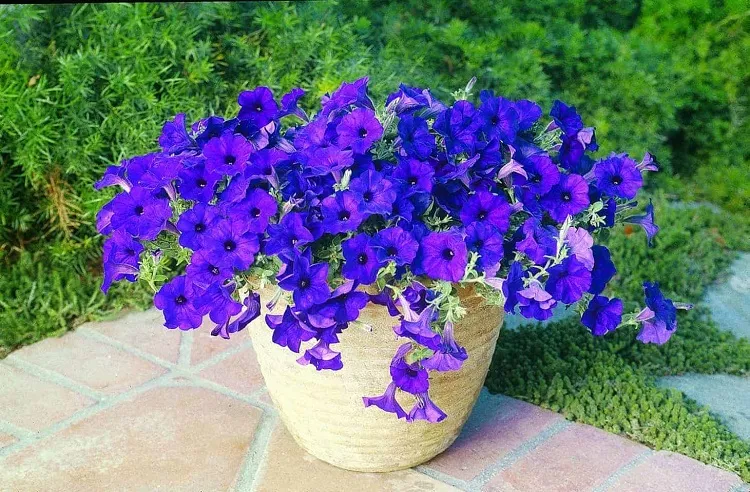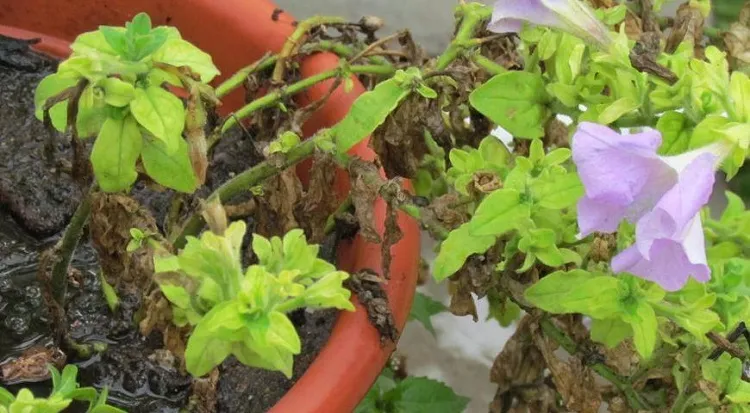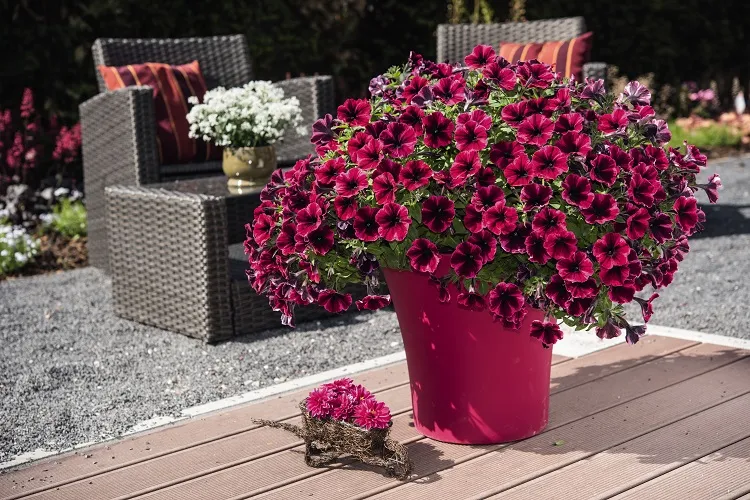If you are looking for some easy to care flower, which you can plant in a pot, and place it practically anywhere, your choice will probably be the cheerful and colorful petunia. It is a vibrant and versatile blooming plant, which is much appreciated for growing in containers for decorating halls, balconies and yards. The admiring ability of petunias to burst in bright and vibrant blooms attracts and excites all the people. So, make a very little effort, and the flower will delight you throughout the summer. In this article, we represent some essential tips to help you learn how to grow and take care of petunias in pots.
How to Grow and Care for Petunias in Pots?
To grow and take care of petunias in pots is a fantastic option for colorful displays on balconies, patios, or windowsills or for those who has a limited garden space. Start by selecting a container with adequate drainage holes to prevent waterlogging. Use a high-quality potting mix that provides good drainage while retaining moisture. Petunias appreciate this kind of soil, so adding perlite or coarse sand to the potting mix can help improve drainage. Place the potted plants in a location that receives full sun. These flowers thrive in bright sunlight and produce the best blooms under such conditions all summer long. Remember to rotate the pots regularly to ensure even growth and prevent the plants from leaning towards the light source.
How Often Should You Water Petunias?
Proper watering is crucial for the health of your flowers when you grow and take care of petunias in pots. Water the plants thoroughly whenever the top inch of soil feels dry to the touch. Avoid overwatering, as excessive moisture can lead to root rot and other diseases. In hot weather or during extended dry spells, the flowers may require watering every day or every other day. However, it is essential to monitor the soil moisture and adjust the watering frequency accordingly.
Should You Cut Dead Flowers off Petunias?
Deadheading, the process of removing spent flowers, is beneficial when you grow and take care of petunias in pots. Performing this regularly not only keeps the plants tidy, but also promotes continuous blooming. By removing faded blooms, you prevent the flowers from diverting energy into seed production and encourage the growth of new buds and florets. To deadhead them, simply pinch off or snip the faded flower heads just above the nearest set of healthy leaves or buds. This practice can be done throughout the growing season to maintain a profusion of fresh and vibrant blooms.
How to Keep Potted Petunias Blooming?
When you grow and take care of petunias in pots, regular fertilization is essential, if you want to keep potted flowers blooming vigorously. Feed the plants every two to three weeks with a balanced fertilizer according to the manufacturer’s instructions. This provides the necessary nutrients to support continuous blooming and healthy growth. Additionally, these potted flowers benefit from occasional pruning. Trimming back them by about one-third of their height helps promote branching and stimulates new growth, resulting in a fuller and more compact plant. Pruning also helps remove any leggy or straggly stems, keeping the overall appearance neat and tidy.
How to Take Care of Petunias in the Garden?
When you grow and take care of petunias in pots outside, or when they are planted directly in the garden, it is important to choose a sunny location that receives at least six hours of direct sunlight each day. These plants thrive in well-drained soil, so ensure that the garden bed is prepared with organic matter and has good drainage. Before planting, take care to space the flowers adequately to allow air circulation between them. This helps prevent the occurrence of diseases and promotes healthier growth. Water petunias thoroughly after planting and continue to water regularly, especially during dry spells. Fertilizing them in the garden is also crucial to promote robust growth and abundant blooms. Use a balanced, slow-release fertilizer or a water-soluble one, specifically formulated for flowering plants. Follow the instructions on the packaging for proper application rates and timing. Additionally, during the hot summer months, petunias may benefit from a layer of mulch on the soil surface. This is helpful to retain moisture, prevent the weed growth, and regulate the soil temperature. Apply a thin layer of organic mulch around the base of the plants, taking care not to cover the stems or the leaves.
Grow and Take Care of Petunias in Pots: Do They Disease?
Regularly inspect your potted petunias for any signs of pests or diseases. Common issues include aphids, spider mites, and fungal infections. If you notice any problems, take appropriate measures, such as using insecticidal soap or applying a suitable fungicide as directed.
With these care tips in mind, you can enjoy a season filled with the vibrant colors and cheerful blossoms of petunias.

